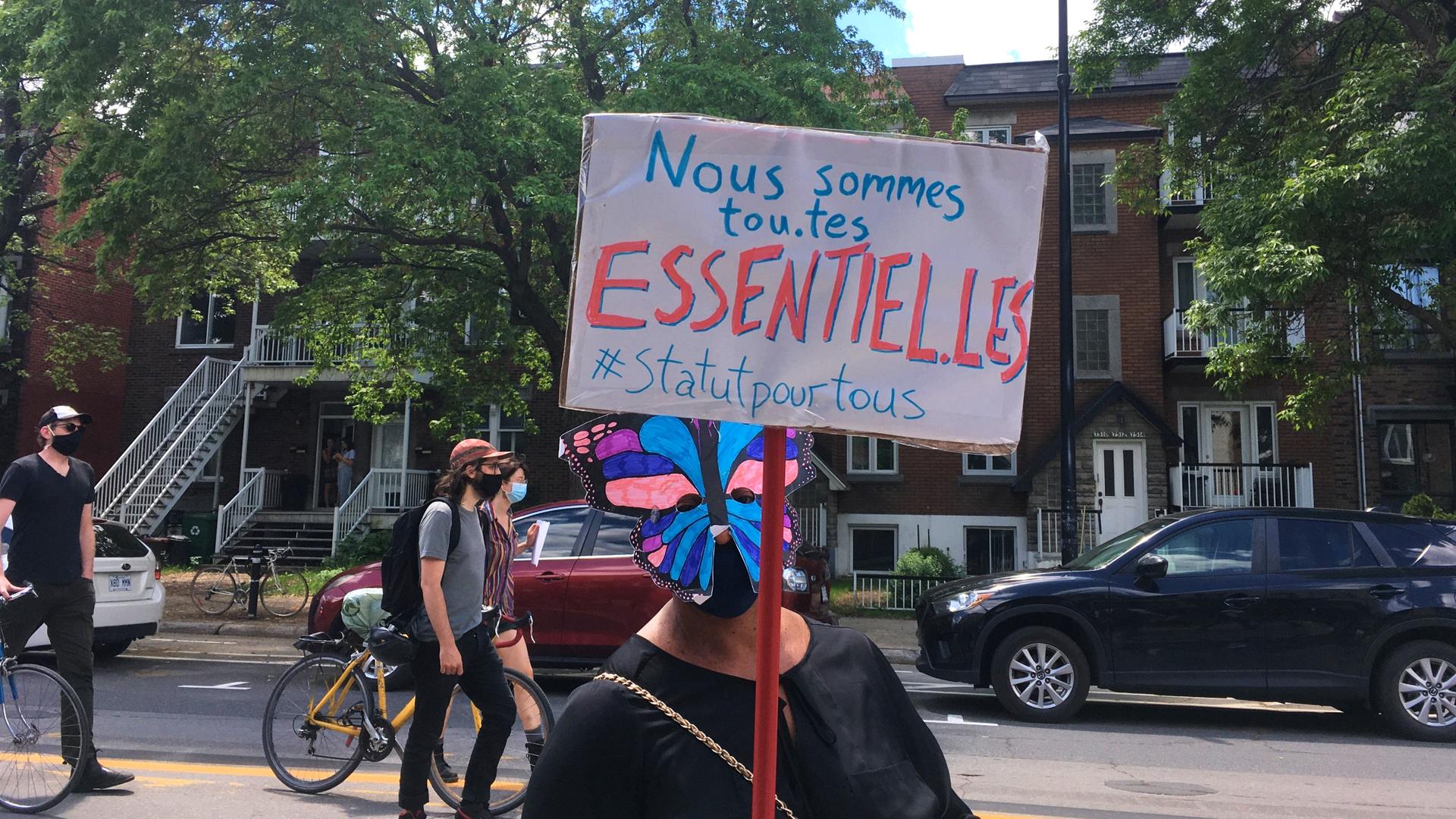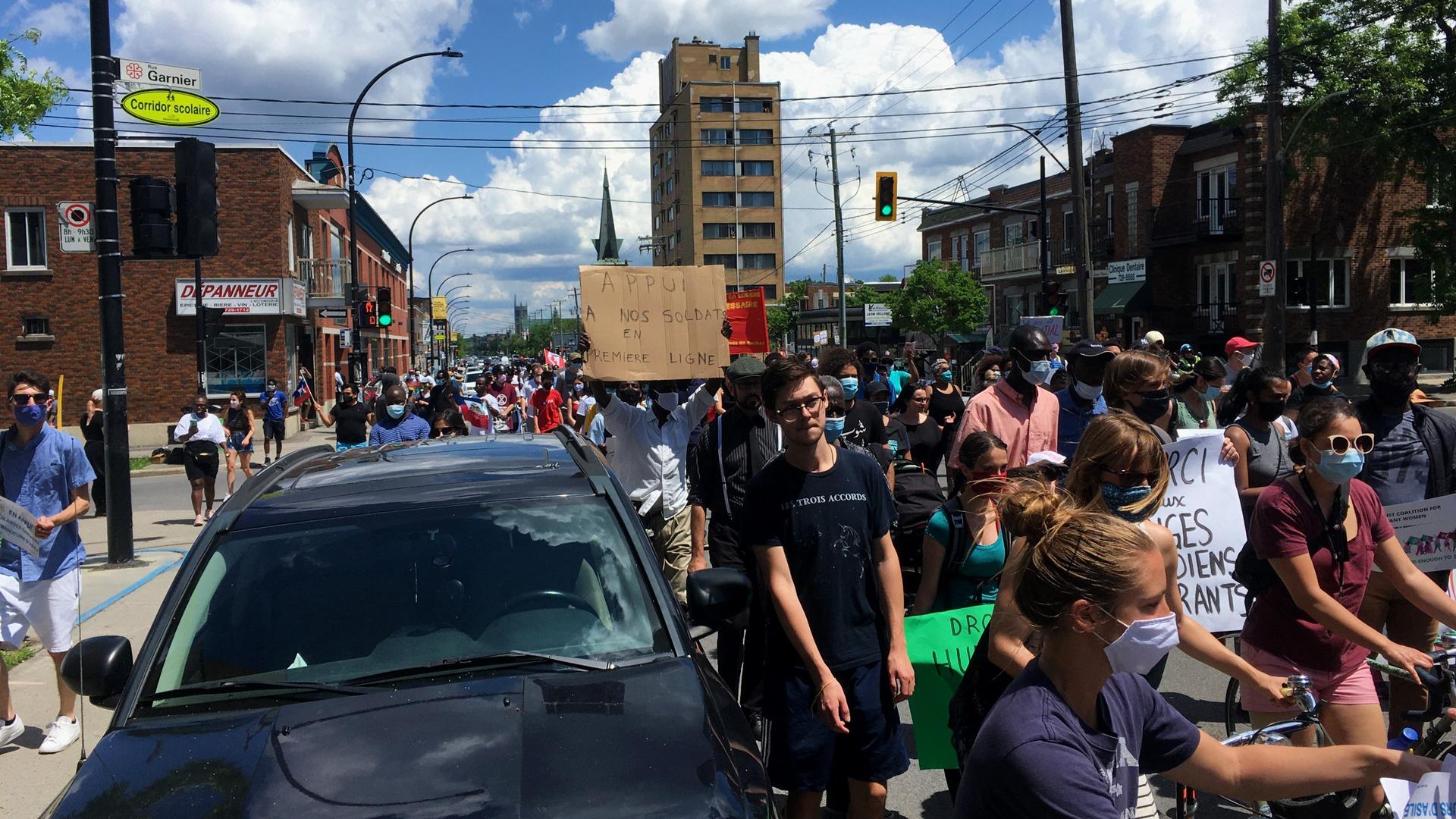Canada is granting residency to some asylum-seekers working in pandemic health care
Magdala Jean-Pierre Michel arrived in Canada two years ago. She had left Haiti after a former government official threatened her, she said.
First, she went to the United States, but believed it would be too tough to seek asylum in the US under the Trump administration. So, like many others in her situation, she walked across the border into Canada.
Related: As asylum-seekers trek north, Canada examines border loophole
In Quebec, she has worked as an aide in nursing homes, while the Canadian government reviews her asylum case.
“I love my work because you’re close to the person,” she explained in June after finishing her shift at a residence in Montreal. “You talk with them. You’re a bridge between the time they have left on this earth and beyond.”
‘Exceptional contributions’
Earlier this month, Canada’s immigration minister Marco Mendicino announced that the country will grant permanent residency to some asylum-seekers, like Michel, who have been working in institutions hit hardest by the COVID-19 pandemic: hospitals and long-term care homes.
Those who can prove their eligibility based on labor status will receive permission to stay in Canada — whether or not their asylum claim would eventually have been accepted.

“We really wanted to place an emphasis on the exceptional contributions of the asylum-seekers who put themselves at the greatest risk,” said Mendicino, explaining that the program would be restricted to asylum-seekers who have directly cared for patients at their jobs.
“Back home, we have an expression,” Michel said. “’What’s not good for you could be good for me.’ Which is to say, the pandemic is a tragedy, but it’s also produced movement on certain things.”
“The pandemic is a tragedy, but it’s also produced movement on certain things.”
Migrants on the frontlines
In Canada, asylum-seekers who have crossed from the US by the tens of thousands since 2017 have received a mixed welcome. In Quebec, now-Premier François Legault said back in 2017 that the province could not accommodate “all the world’s misery.”
However, Quebec’s long-term care homes were critically short-staffed and thousands of asylum-seekers found work as orderlies while they waited, sometimes years, for a resolution of their asylum claims.
Related: Refugees asking for asylum in Canada argue the US is no longer safe
Many were at the heart of tragedy this spring, as COVID-19 spread through hundreds of Quebec care homes, particularly in and around Montreal.
“The virus traveled quickly,” said Michel. “It was like a forest fire.”
More than 60% of COVID-related deaths in Canada have been in Quebec — and 80% of those who died either lived or worked in nursing homes. Some residences reported dozens of deaths.
‘Guardian angels’
Legault, who since his comments in 2017 has become head of the provincial government, began referring to care home workers as “guardian angels” in his daily coronavirus press briefings this spring.
Still, he initially resisted calls and demonstrations from immigrant rights advocates arguing that asylum-seekers at care homes and hospitals should be assured they can remain in Canada.
“We cannot open the door to say, ‘If you come illegally, if you find a job, that’s OK, I will accept you as an immigrant,’” Legault said in May.

Legault’s tone subsequently softened and, now, Quebec’s government officially supports the federal plan to offer certain asylum-seekers working in health care permanent residency.
“We really wanted to place an emphasis on the exceptional contributions of the asylum-seekers who put themselves at the greatest risk.”
Following the formal announcement, Michel reacted with mixed feelings — including a sense of relief that she will finally be able to solidify her own status in Canada. However, she expressed disappointment that many of her colleagues who do not work directly with patients were not included.
“The security guards who open the doors for us … the cleaning and maintenance staff who help keep us protected, the kitchen staff in these same care homes, they were forgotten,” she said.
